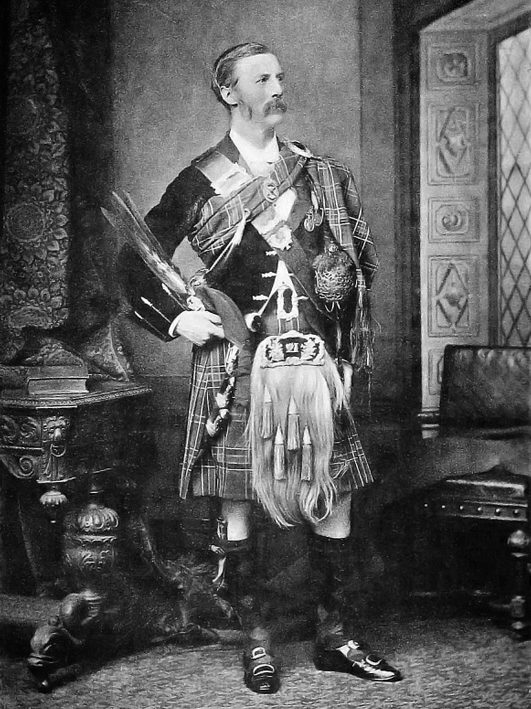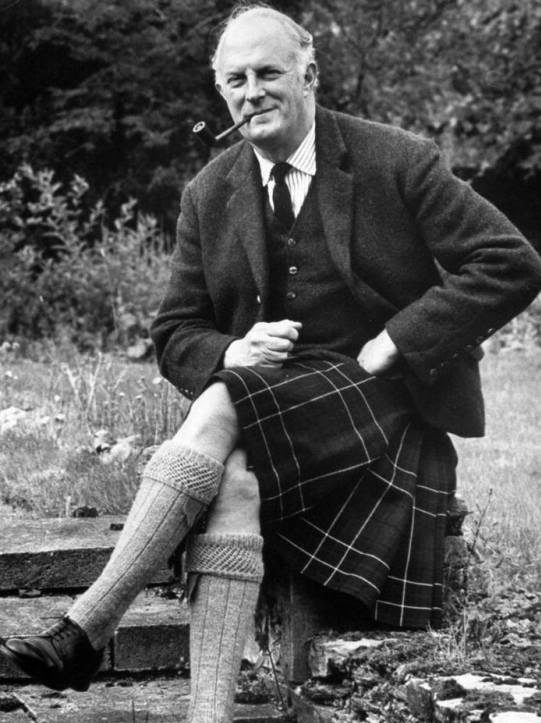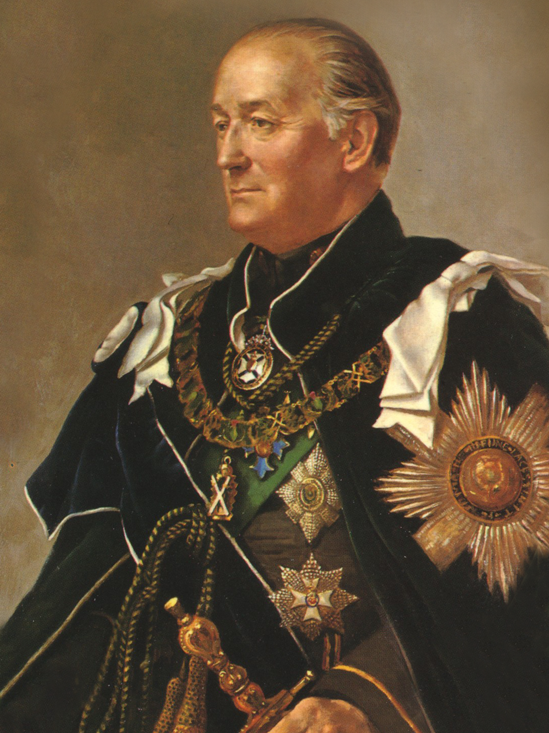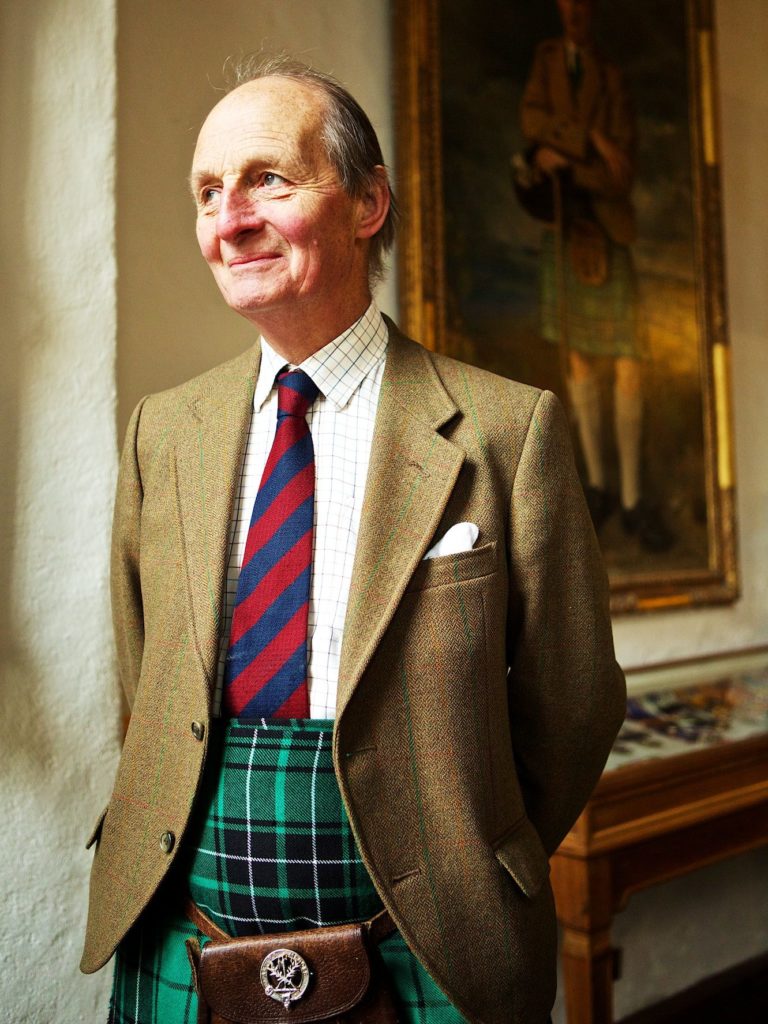20th Century — Present
In 1911, Sir Fitzroy Donald Maclean of Duart, Bt, 26th Chief, proudly proclaimed, “I am happy to say the ancient stronghold of the Macleans is now my property”
to the 400 Macleans who joined him to celebrate the reclaiming of Duart Castle. “It is 221 years since the Maclean banner has been over this ancient castle… and I know perfectly well that the honor of that flag and the honor of our clan will be ever safe in your hands.”
The 17th century Chiefs had difficulty transitioning from the marshal footing of the Lordship of the Isles to the court-centered political landscape; however by the 18th century they had mastered their political craft while maintaining the proud military tradition of their ancestors. Several modern Maclean Chiefs and Chieftains have embodied the warrior statesmen—among them are:
Sir Fitzroy of Duart

Colonel Sir Fitzroy Donald Maclean, 10th Baronet of Duart, KCB, 26th Chief restored Duart Castle.
Sir Fitzroy was a well-traveled and unusually connected man. He was a close friend of King Edward VII, an acquaintance of Queen Victoria, and received by Pius IX. He witnessed Florence Nightingale nursing soldiers in Malta and grew to like Jefferson Davis.
The Clan Maclean owes much of its resurgence Sir Fitzroy’s leadership. He lived to be 101, and on that birthday the feud with the Campbells ceased, news that made the New York Times.
Sir Fitzroy served in the Crimean War with the 13th Hussars fighting at all engagements except for the Battle of Balaclava due to dysentery. Had he been well, Sir Fitzroy would have mounted for the disastrous cavalry charge immortalized by Tennyson’s, “The Charge of the Light Brigade.”
Sir Fitzroy of Dunconnel

Sir Fitzroy Hew Royle Maclean, of Dunconnel, Bt, KT inspired the gentleman-spy hero, James Bond.
Sir Fitzroy joined the Special Air Service (SAS) in 1942 at the request of its founder, David Stirling, who was a friend and godfather to one of Sir Fitzroy’s sons. A year later, and at Churchill’s direction, he commanded the military mission that parachuted into Yugoslavia to assist Tito in repelling the German occupation.
He traveled so frequent without permits throughout central Asia in the 1930’s that the Soviets believed he was a spy. He is one of the men who’s stories of World War II inspired the development of friend Ian Flemming’s character, James Bond.
Sir Fitzroy spent most of his life in the service of his country; he became a diplomat, Member of Parliament, and author. Sir Fitzroy was made a Baronet in 1957 and a Knight of the Thistle in 1993.
Lord Charles of Duart

Lord Charles Maclean of Duart & Morvern, Bt, KT, GCVO, KBE, PC, Baron Maclean, 27th Chief is arguably the most influential Scottish chief of the modern era.
Lord Charles served in the Scots Guards during World War II. Most notably he participated in the Invasion of Normandy and the Battle of Villers-Bocage at the Caumont front. By war’s end, he had fought in France, Belgium, the Netherlands, and Germany.
Following the war, he modernized the Scouting movement before being selected to serve as head of Queen’s household. He personally orchestrated the wedding of Prince Charles to Lady Dianna Spencer.
He was Privy Councillor and Lord Chamberlain to HRH Elizabeth II; and was made a Knight of the Thistle, the Royal Victorian Order, and the Order of the British Empire.
Sir Lachlan of Duart

Sir Lachlan Maclean of Duart & Morvern, Bt, CVL, DL, 28th Chief has preserved the history and culture of the Macleans for future generations.
Sir Lachlan served in the Scots Guards and was accepted into the Special Air Service (SAS), an elite special forces unit of the British Army. He served under Lord Guthrie in Operation Storm, and was part of a United Nations Peacekeeping mission in Cypress. Sir Lachlan served in combat operations for which he was awarded the General Service Medal and United Nations Medal.
Following retirement from military service, sir Lachlan became an executive with United Biscuits; he later went into private business as a restaurateur.
Today Sir Lachlan works to preserve the Clan Maclean’s history and culture for future generations.
Since the restoration of Duart Castle Macleans around the globe have become one of the most active and involved modern Scottish Clans. Today, the Clan Maclean truly is a world-wide family.
